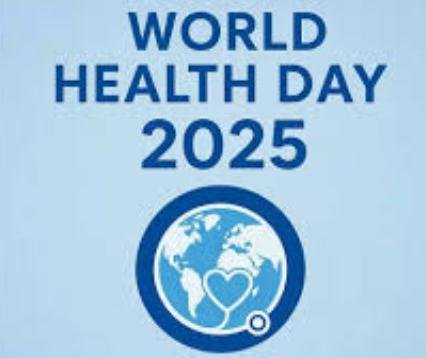World Health Day 2025: Urgent Call to Improve Maternal and Newborn Health Globally Theme: “Helping Every Woman and Baby Survive and Thrive”

April 7, 2025 -Today marks World Health Day, celebrated annually on April 7 to commemorate the founding of the World Health Organization (WHO) in 1948. Each year, the WHO spotlights a critical health issue, and this year’s theme — “Helping Every Woman and Baby Survive and Thrive” — focuses on the urgent need to strengthen care for mothers and newborns around the world.
Despite decades of progress, maternal and newborn mortality remains alarmingly high. Current estimates show that nearly 300,000 women die every year due to pregnancy or childbirth complications. Even more devastating, over 2 million babies die within their first month of life, and another 2 million are stillborn. That equates to one preventable death every 7 seconds.
Tragically, the world is falling short of global targets. If current trends persist, 4 out of 5 countries will fail to meet the 2030 goals for maternal survival, while 1 in 3 countries will miss the mark for reducing newborn deaths.
The WHO emphasizes that the key to reversing these trends lies in listening to women and supporting families. Women and newborns need access to high-quality, respectful care — care that addresses both physical and emotional health before, during, and after childbirth. Beyond obstetric care, maternal health services must tackle issues such as mental health conditions, noncommunicable diseases, and access to family planning.
“Health systems must evolve,” said WHO officials in a statement. “They must be equipped not just to handle emergencies, but to provide continuous, compassionate care that protects the health and rights of every woman and child.”
In addition to improved clinical care, the WHO is calling on governments to implement and enforce laws and policies that safeguard the health and dignity of women and families.
This World Health Day, the global community is reminded that saving lives is possible — but only if action is taken. Supporting mothers and newborns is not just a health issue; it is a moral imperative, a human rights issue, and a cornerstone of sustainable development.





